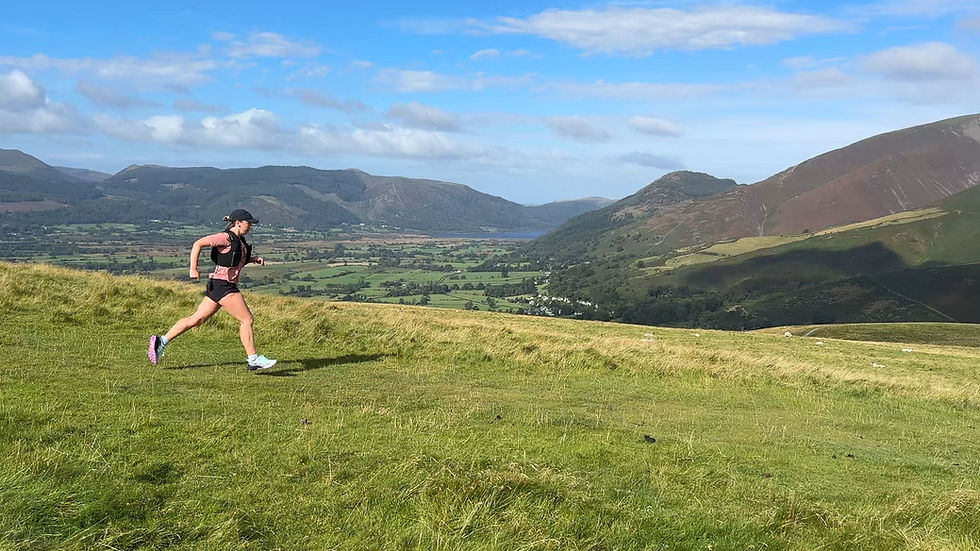Trail Running Coaching: Elevate Your Trail Skills
- High Peak Running

- Sep 22
- 4 min read
Trail running is an exhilarating way to connect with nature while pushing your physical limits. However, mastering the unique challenges of trail terrain requires more than just endurance. It demands skill, technique, and strategy. Whether you are a beginner or an experienced runner looking to improve, expert trail coaching advice can transform your running experience and performance. This post will guide you through essential tips and practical steps to elevate your trail skills effectively.
Understanding the Basics of Trail Running
Trail running differs significantly from road running. The uneven surfaces, varying elevations, and natural obstacles require a different approach to training and technique. Before diving into advanced skills, it’s crucial to build a solid foundation.
Footwear: Invest in trail-specific running shoes with good grip and support. This reduces the risk of slipping and injury.
Pacing: Unlike road running, pacing on trails is less about consistent speed and more about managing effort. Learn to adjust your pace according to terrain difficulty.
Body Position: Maintain a slight forward lean to help with balance and momentum on uphill and downhill sections.
Hydration and Nutrition: Carry water and energy snacks, especially for longer runs, as trail routes often lack access to supplies.
By mastering these basics, you prepare your body and mind for the more technical aspects of trail running.

Trail running requires adapting to uneven and rocky surfaces.
Expert Trail Coaching Advice to Improve Your Technique
To truly elevate your trail running, consider incorporating expert trail coaching advice into your routine. Professional coaching can provide personalised feedback and structured training plans tailored to your goals and terrain preferences.
Key Areas Coaches Focus On:
Running Form
Coaches analyse your stride, foot placement, and posture to improve efficiency and reduce injury risk. For example, shorter strides with quicker cadence often work better on technical trails.
Hill Training
Uphill and downhill running require different muscle groups and techniques. Coaches teach you how to conserve energy on climbs and control your speed on descents safely.
Navigation Skills
Trail running often involves less marked paths. Learning to read maps, use GPS devices, and understand trail markers is essential for safety and confidence.
Strength and Conditioning
Targeted exercises improve core stability, leg strength, and balance, all critical for handling rugged terrain.
Mental Strategies
Coaches help develop focus, motivation, and coping mechanisms for fatigue and challenging conditions.
Incorporating these elements into your training can significantly boost your trail running performance.
Proper footwear and technique are essential for technical trail sections.
How to Choose the Right Trail Running Coach
Selecting the right coach can be overwhelming with many options available. Here are some practical tips to help you make an informed decision:
Experience and Credentials: Look for coaches with a background in trail running and certifications in coaching or sports science.
Personalisation: The best coaches tailor training plans to your fitness level, goals, and local terrain.
Flexibility: Choose a coach that can schedule your training around your lifestyle and be there to adjust your plan based on progress or setbacks.
Community and Support: Some coaching services offer one-on-one sessions, which can enhance motivation and learning.
Assessment: Some coaches provide assessments (best effort tests to set your training zones).
For those interested in professional guidance, trail running coaching offers structured skill development and personalised support to help you reach your potential.

Personalised coaching helps improve technique and confidence on trails.
Practical Training Tips to Elevate Your Trail Skills
Improving your trail running skills requires consistent practice and smart training. Here are actionable tips to incorporate into your routine:
Practice on Varied Terrain: Run on different surfaces such as rocky paths, mud, grass, and steep hills to build adaptability.
Interval Training: Include short bursts of high-intensity running followed by recovery periods to improve cardiovascular fitness and speed.
Strength Workouts: Incorporate exercises like lunges, squats, and planks to build the muscles used in trail running.
Balance Drills: Use balance boards or single-leg stands to enhance stability.
Recovery: Prioritise rest, stretching, and foam rolling to prevent injuries and aid muscle repair.
Trail Skills Drills: Practice descending and ascending techniques, quick foot placement, and obstacle navigation regularly.
By following these tips, you will notice improvements in your agility, endurance, and confidence on the trails.
Preparing for Trail Running Events and Challenges
Participating in trail races or long-distance challenges requires specific preparation beyond regular training. Here’s how to get ready:
Course Reconnaissance: If possible, visit the race course beforehand to familiarise yourself with the terrain and key sections.
Gear Check: Test your shoes, hydration pack, and clothing during training runs to avoid surprises on race day.
Nutrition Strategy: Plan your energy intake and hydration carefully, considering the race duration and conditions.
Mental Preparation: Visualise the race, set realistic goals, and develop strategies to stay motivated during tough moments.
Pacing Plan: Develop a pacing strategy that accounts for elevation changes and technical sections.
These preparations will help you perform at your best and enjoy the experience.
Keep Progressing with Consistent Learning and Adaptation
Trail running is a journey of continuous improvement. Stay curious and open to learning new techniques, adapting your training, and exploring different trails. Join local running groups, attend workshops, and follow expert advice to keep your skills sharp.
Remember, the right guidance can make a significant difference. Consider investing in trail running coaching to receive expert support tailored to your needs.
With dedication and the right approach, you can elevate your trail running skills and fully embrace the adventure that comes with every run.

Exploring diverse trails enhances skills and keeps training exciting.








Comments